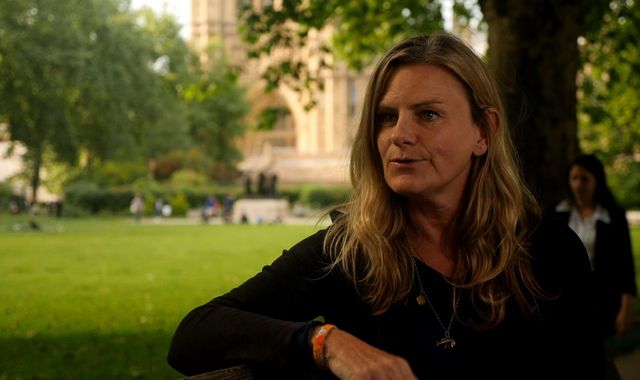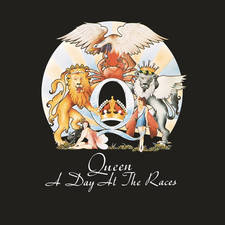Campaigners call for NDA law changes as agreements remain 'rife' in entertainment
24 January 2025, 16:30 | Updated: 26 January 2025, 08:48

A former assistant to Harvey Weinstein has accused parliament of being too "slow to act" on the misuse of non-disclosure agreements (NDAs) – saying there has been "a clear trail" of their use at the root of "every scandal of abuse".
In 2017, Zelda Perkins was the first woman to break a Weinstein-related NDA signed decades earlier, an action which helped expose the Miramax movie producer's predatory behaviour to the world.
Since then, through her organisation Can't Buy My Silence, she's been a vocal campaigner to try to get changes to the law.
Explaining her frustrations in an interview with Sky News, she said: "Since Weinstein's horrific behaviour was exposed nearly seven years ago we have seen other powerful abusers exposed on a monthly basis… there is a clear trail of the use of NDAs at the root of every scandal of abuse.
"International law is changing fast but the UK is being slow to act, which is especially frustrating to me as this is where the first exposure of the systemic use of NDAs to protect the powerful was highlighted."
An NDA is a legally binding contract that protects confidential information between parties. While they were conceived to protect Intellectual Property (IP) and can have a legitimate place in the world of business to protect client confidentiality, their misuse made headlines once again this year when hundreds of women came forward to make claims that NDAs had been used to silence victims of the late Harrods boss Mohamed al Fayed.
Ms Perkins argues there's indisputable evidence that legal changes are needed.
"We have the law to protect us from ourselves and, if the law is being misused as a tool of abuse, then we have a duty to change that."
She believes changes haven't happened yet because there is "an enormous amount of fear in the halls of power about taking away the ability to silence people who are going to show up your wrongdoing."
While Ireland, Canada and the US have all introduced legislative changes, the UK hasn't prioritised amending its law - but could that be about to change?
The government has said it intends to implement the Conservative plan to ban NDA use in universities, and its understood to be considering how to ban their misuse by employers more widely.
At a recent select committee hearing, workers' rights minister Justin Madders confirmed the government is "looking closely" at whether changes could be made via its landmark employment rights bill - pitched by Number 10 as "the biggest upgrade to workers' rights in a generation".
In a statement, the government promised to "set out its position on any amendments...in parliament".
For years, Ms Perkins has campaigned for NDAs to only be used for their intended purpose - to protect IP and trade secrets - and argues they should only be able to be requested by a victim with certain provisions in a settlement agreement.
While Ms Perkins' experience was in the world of film, a number of leading music industry voices have spoken to Sky News about the problematic way in which they feel NDAs are being used.
Charisse Beaumont, the chief executive at Black Lives in Music, claims the agreements "are used to cover up criminal criminality in its extreme nature… exploiting the music, bullying and blackmailing… it's rife".
She says: "You've got high-profile cases… cases of individuals who have numerous cases in court, numerous testimonies of people saying they've been abused by them, yet they're still able to work. Some of them are still being promoted.
"Can you imagine being a victim and watching the person who did something to you be promoted?"
Sean 'Diddy' Combs - who awaits trial for sex trafficking and racketeering, which he strenuously denies - was at the height of his fame in the noughties.
A former music video dancer from back then has told Sky News the use of NDAs within music was always widespread.
Elisabeth Ovesen said she would "come dressed ready for a party, get to the door, and there's an NDA before you can step in".
Former reality star Katie Waissel has left the music industry behind to study law. She now campaigns against the use of NDAs.
"I've had many conversations with former secretaries of state, the DCMS [Departure for Culture, Media and Sport], for example, the former home secretary, alongside many, many other amazing people being campaigning for legislative change.
"I understand nondisclosure agreements in terms of protecting trade, like a formula for haircare or something else like that. But for the music industry, and it being so one-sided for this company, it begs me to ask the question - why so secretive? What are you trying to hide? What are you trying to cover up?"
(c) Sky News 2025: Campaigners call for NDA law changes as agreements remain 'rife' in entertainment













